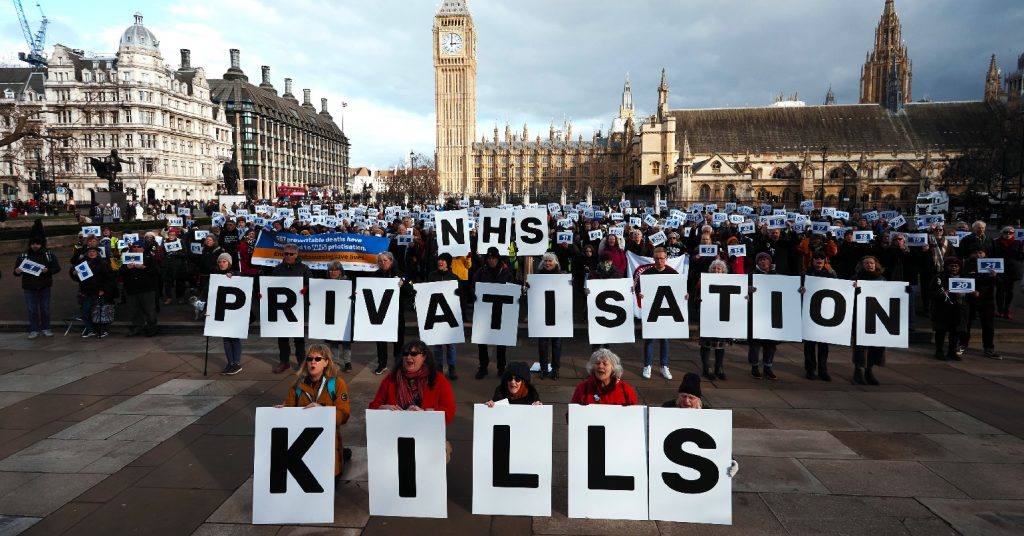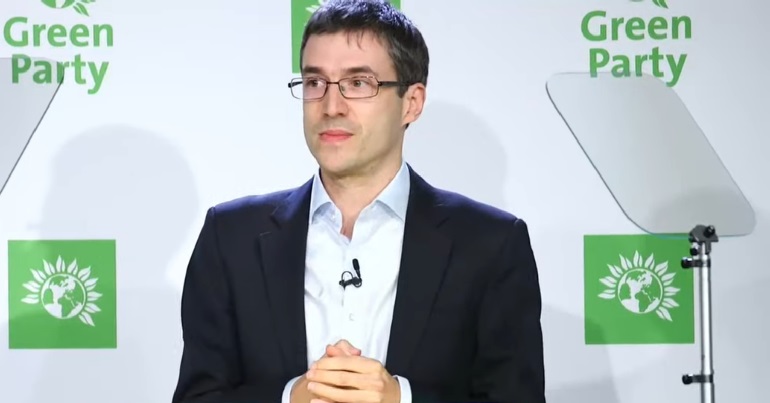“Channel 4 Ain’t Broke”: Over 20 production companies launch bid to stop sell-off

The battle to save Channel 4 from privatisation has gained yet more traction today. A raft of production companies and public figures have come out fighting against the sell-off, which culture secretary Nadine Dorries confirmed she intends to go ahead with earlier this year.
A total of 27 leading production companies have joined forces to launch the new ‘Channel 4 Ain’t Broke’ campaign coordinated by anti-privatisation group We Own It. And they’ve been backed by major players in both the arts and public life.
Among those who’ve thrown their weight behind the campaign is Armando Iannucci, the writer who created seminal comedy shows including The Day Today, The Thick of It and I’m Alan Partridge. Siobhán McSweeney, who played Sister Michael in the hit Channel 4 show Derry Girls has also backed the campaign. And it has had support from Big Boys creator Jack Rooke, Plebs star Jon Pointing, and the Archbishop of York Stephen Cottrell.
McSweeney said that Derry Girls “wouldn’t have happened” without Channel 4, and condemned the moves to privatise the broadcaster. She said, “Channel 4 is a huge success story and Derry Girls wouldn’t have happened without it – it’s something to be proud of not something to destroy. Right now Channel 4 is boosting the economy and throwing open the door for a new generation of writers, performers, producers and creative thinkers across the country. It ain’t broke – so don’t fix it!”
The 27 production companies behind the campaign include Fin Studios. Mark Williams, a Director at Fin Studios branded the plan to privatise Channel 4 “crazy”. He said, “Channel 4 is the levelling up broadcaster. It supports tons of small businesses like ours all around the country. It gives people a way to get a foot in the door into the industry, whatever their background. It’s time to drop this crazy plan to sell it off.”
The launch of the ‘Channel 4 Ain’t Broke’ campaign comes as the government faces increasing opposition to the sale from within the Tory party. Former Tory frontbencher Jesse Norman MP even went as far as to cite the mooted privatisation in his letter which declared he no longer had confidence in Boris Johnson. He wrote, “privatisation of Channel 4 is an unnecessary and provocative attempt to address a political non-issue during a time of crisis, at significant cost to the independent UK film and TV industry”.
Channel 4 is currently a publicly owned broadcaster but it does not receive public money. Instead, it is funded through commercial advertising. As recently as November, Dorries appeared not to understand this basic element of the broadcaster’s structure – despite being in charge of its future.
Dorries has since faced heavy criticism and ridicule for a number of gaffes she has made when discussing the proposed sell-off. In April, when making the case for the privatisation of Channel 4, she suggested that the sale could emulate the history of Channel 5, claiming that it had been privatised “three years ago, five years ago maybe”. Channel 5 was never in public hands and was thus never privatised. Then, in May, she argued that in public hands the broadcaster was being held back because it could not raise external investment. Channel 4 responded that it “does not want or need to raise outside capital to fund its future plans.”
Campaigners from ‘Channel 4 Aint Broke’ claim that the broadcaster is a major contributor the British economy. They cite evidence that suggests Channel 4 currently provides 10,000 jobs, with hubs in Leeds, Glasgow, Bristol, and Cardiff, returns £74 million to the public purse in profit and generates £1 billion for the wider economy.
We Own It – the group coordinating the campaign – are calling on members of the public to write to their MP to demand the sale be stopped, and are running a petition which at the time of writing has over 37,000 signatures.
PS. We hope you enjoyed this article. Bright Green has got big plans for the future to publish many more articles like this. You can help make that happen. Please donate to Bright Green now.
Image credit: UK Government: Creative Commons




Leave a Reply